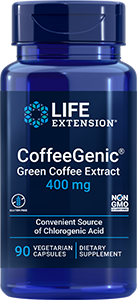- Science & Research
- Science News
- Newsletter
- 2011
- December 13

Newsletter
Newsletter
Seaweed Fiber Improves Weight Loss Overweight Men And Women
Seaweed fiber improves weight loss in overweight men and women
Tuesday, December 13, 2011. A doctoral thesis by Morten Georg Jensen of the University of Copenhagen in Denmark concludes that alginate, a viscous fiber derived from brown seaweed, can improve weight loss when regularly consumed by overweight adults. "Over a three-year period, we have studied the effect of taking different alginate doses," Jensen reports. "We are able to demonstrate that the healthy subjects who took alginates and were also allowed to eat as much as they wanted felt less hungry and ate less than the subjects not drinking fiber drinks with alginates." The thesis describes a twelve week study in which 96 overweight men and women were divided to receive a drink that contained alginate or a placebo daily in combination with a reduced-calorie diet. At the end of the study, participants who received the seaweed fiber lost 1.7 kilograms (nearly 4 pounds) more on average than those who received the placebo, which was primarily due to a decrease in body fat percentage. "A probable explanation of the weight loss is that the alginates form a gel in the stomach which strengthens the gastrointestinal satiety signals to the brain because the gel takes up space in the stomach," Jensen commented. "The overweight subjects thus ate less than usual." The study's findings suggest that consuming fibers such as alginate could help counter the results of modern access to large quantities of calorie and fat-laden food. "Eating more than you burn results in a body energy imbalance, which may lead to weight gain in the long term," Jensen noted. "It is therefore crucial that new dietary measures improve appetite control and limit our food intake." He concluded that "Further studies are needed in order to substantiate the usefulness of alginate in the management of obesity and the metabolic syndrome." | ||||||||||||||||||||||||||||||||||||||||
 | ||||||||||||||||||||||||||||||||||||||||
| ||||||||||||||||||||||||||||||||||||||||
 | ||||||||||||||||||||||||||||||||||||||||
| ||||||||||||||||||||||||||||||||||||||||
| ||||||||||||||||||||||||||||||||||||||||
The latest news on aging, nutrition, and vitamins
Lab
Testing
How Life Extension lab testing works











